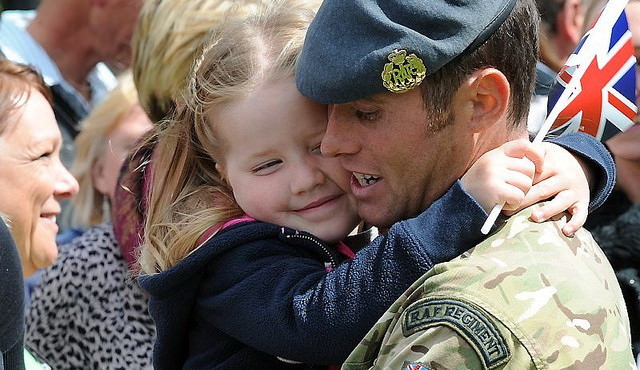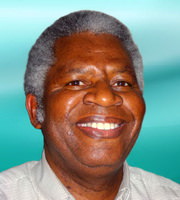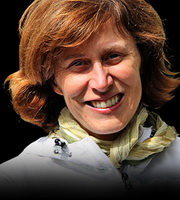
by Audrey Hollingshead
Bought the farm. Kicked the bucket. Pushing up daises. Six feet under. Worm food. Lets face it. Death is a scary thing. We wouldn’t have coined these euphemisms otherwise. They allow us to talk about it without naming death outright. But why IS death so scary? What is it about the BIG sleep that makes us so afraid?
Our ceasing to exist. We love life so much that we can’t imagine that it will end-even though we have been told it WILL end at some point. So how can we combat this fear and learn to live with the unavoidable? Simple: Just ask the son of Erik or, as we know him, Erik Erikson.
Erik Erikson was a German-born American developmental psychologist. While he may not have earned a Ph.D. he certainly professed an interesting idea of human development. Unlike Freud who claimed our psyches were formed at the ripe age of five, Erikson believed we spend our whole lives developing. His theory of psychosocial development is made up of eight stages and by digging through them we can find an essential key to accepting death. So what are they?
Stage 1: Hope: Trust vs. Mistrust. (Ages 0-2)
Central Crisis: Can I trust the world?
In this stage we learn whether or not we can trust the world by how regularly we are cared for. If our parents tend to us habitually and do everything they can to satisfy our basic needs we not only learn to trust our surroundings, but we also to trust the world at large and develop hope.
On the flip side: If our parents fail to fulfill our basic needs we take that as a sign that the world at large CAN’T be trusted.
Stage 2: Will: Autonomy Vs. Shame and Doubt. (Ages 2-4)
Central Crisis: Is it OK to be me?
This stage teaches us self-sufficiency. We also start to explore our interests and who we are as a person. If our parents let us complete tasks we can handle (such as using the toilet or pouring our own milk) we learn how to be autonomous and to how to express ourselves.
On the flip side: If our parents expect too much from us or ridicule every attempt to complete tasks we can do on our own, we feel shame and doubt. Facing our own problems without help also becomes much harder.
Stage 3: Purpose: Initiative Vs. Guilt. (Ages 4-5)
Central Crisis: Is it OK to do, move, and act?
In this crucial stage we move beyond simply acting to acting with a purpose. We take on leadership roles and prepare to meet goals set by others or ourselves. Guilt is a new emotion and can sometimes be felt when there is no logical reason. We also take risks, develop judgment, and basically try to gain more independence. Parents help us in this stage by showing how to set realistic goals for the things want to do.
On the flip side: If we don’t complete an action on time OR if what we want to do interferes with other plans we can become frustrated and act out. If parents and teachers fail to encourage us to set goals OR belittle the interests we have we tend to feel guilty about them.
Stage 4: Competence: Industry vs. Inferiority (Ages 5-12)
Central Crisis: Can I make it in the wide world?
We become more aware of whom we are and how time works. We try to do what is right. But most essentially, we build on the interests we started to develop in the earlier stages. If parents find activities that match our interests we become happy and more independent.
On the flip side: If parents don’t nurture our interests we lose motivation to complete activities and can become both couch and mouse potatoes.
Stage 5:Fidelity: Identity vs. Role Confusion (Ages, 13-19)
Central Crisis: Who am I? What can I be?
As with every stage you are forced through a crisis, this crisis being identity. To fully transition from childhood to adulthood you have to find an identity that fits you authentically. You did (or do) this by trying on different roles (such as being a jock, drama geek, or partner) to see which suited you best. Sometimes you may experience “Roles Confusion.” This happens when you don’t know exactly where you fit and will often try on extreme roles to find one that does. You also often ponder how you will act in the real adult world.
On the flip side: One of the mixed blessings of this stage is that you will finally get in touch with how you feel about your life and possible career choices. But those might not match up with how your parents and society feel and could cause you to stop trying to find “yourself.”
Stage 6: Love: Intimacy vs. Isolation (Ages, 20-24, or 20-39)
Central Crisis: Can I love someone else?
As we start to solidify who we are as a person we open ourselves up to long-term relationships. This means we are capable of making the necessary sacrifices to nourish close friendships and marriages.
On the flip side: We may be so fearful of rejection that we’ll close ourselves off to people and relationships.
Stage 7: Care: Generativity vs. Stagnation (Ages, 25-64, or 40-64)
Central Crisis: Can I make my life count?
Now we get to the T-bone of what holds together this steak called Prime Life. By now we have learned to trust the world, to trust ourselves, who we are, and how to love. You have no doubt picked a career and have a family to call your own. So how do you make your life count? According to Erikson you must give yourself back to the world that made you to feel successful and happy.
On the flip side: If you cannot contribute to society you will feel stagnate and unfulfilled. This feeling leads right into the last and final stage.
Stage 8:Wisdom: Ego Integrity vs. Despair (Ages 65-death)
Central Crisis: Was it OK to have been me?
As we grow older we tend to look back on our lives. Did we do all that we wanted? Did we lead a successful life? If you have you’ll feel happy and ready to accept death because you know that you’ve contributed to something that will live longer then yourself.
On the flip side: If you haven’t live how you wanted, or, if things got in the way of you getting what you wanted out of life you can feel depressed, hopeless, and fearful of death. With your bucket list knocked over and your life left unfinished the thought of not excising can seem scary. So how do you fix this? By doing exactly what Erikson suggests in stage seven. By contributing to something that will live longer then us we lessen our fears of death because we know that a part of us lives almost immortally.
But what’s even more beautiful about this is that your contribution does not have to be a large one. It could be as small as volunteering at a no-kill animal shelter, getting involved with your kids or grand kids, or sharing your amazing life story. Everyone has the key to quenching the fear of death and we at Dream Positive know that with a little work, you can find yours.
And remember,
Dream Well! Dream Positive!
Image Credit: https://www.flickr.com/photos/29468339@N02/3419565232
























